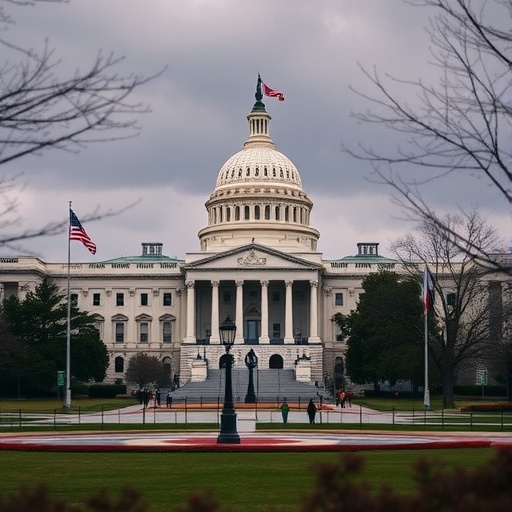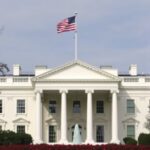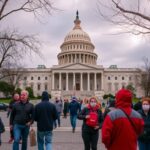Democrats Block Republican Funding Extension: Government Shutdown Deepens as Congress Stalls on Deadline
In a tense showdown on Capitol Hill, Democrats decisively blocked a Republican-led proposal to extend government funding through November 21, plunging the nation deeper into an ongoing Government Shutdown. This dramatic rejection, which occurred late Thursday evening, has left federal operations in limbo, affecting millions of Americans and highlighting the stark political chasm in Congress. As the clock ticks toward more widespread disruptions, lawmakers from both sides are digging in, with no immediate resolution in sight.
- The Republican Proposal Ignites Fresh Battle Lines in Congress
- Democrats Draw a Hard Line: Rejecting the Extension Amid Policy Disputes
- Escalating Impacts: How the Government Shutdown is Hitting Americans Hard
- Capitol Hill Echoes: Lawmakers’ Quotes Reveal Deepening Partisan Divide
- Path Forward: Negotiations Heat Up as Shutdown Deadline Looms
The proposal, spearheaded by House Republicans, sought a short-term continuing resolution (CR) to maintain funding levels at current rates and avert a total collapse of non-essential government services. However, Democratic leaders, citing concerns over fiscal irresponsibility and policy riders attached to the bill, voted en masse against it, sending shockwaves through Washington and beyond. This move not only prolongs the Government Shutdown—now in its third week—but also raises fears of economic fallout as federal employees face unpaid wages and critical programs teeter on the brink.
The Republican Proposal Ignites Fresh Battle Lines in Congress
At the heart of the latest impasse is a Republican-backed funding bill that aimed to bridge the gap until after the midterm elections. Introduced by House Speaker Mike Johnson and supported by a coalition of GOP lawmakers, the measure proposed allocating $1.2 trillion in discretionary spending for fiscal year 2024, extending funding without major cuts or increases. Proponents argued it was a pragmatic stopgap, preventing what they called a “catastrophic shutdown” that could harm veterans, national parks, and border security.
“This isn’t about politics; it’s about keeping the lights on in America,” Johnson declared in a floor speech earlier this week, emphasizing the bill’s clean slate devoid of controversial add-ons. Republicans pointed to data from the Congressional Budget Office (CBO), which estimated that a prolonged Government Shutdown could cost the U.S. economy up to $6 billion per week in lost productivity. The proposal garnered 217 votes in the House but fell short in the Senate, where Democrats, holding a slim majority, filibustered it with a 51-49 procedural vote.
Behind the scenes, negotiations had been underway for days, with GOP leaders offering concessions like delaying certain defense appropriations. Yet, sources close to the talks reveal that trust eroded quickly when Democrats accused Republicans of embedding subtle policy changes, such as restrictions on foreign aid to Ukraine, which they viewed as non-negotiable poison pills. This episode underscores the fragility of bipartisan funding deals in a polarized Congress, where even routine measures now spark ideological warfare.
Democrats Draw a Hard Line: Rejecting the Extension Amid Policy Disputes
Democratic opposition crystallized around what Senate Majority Leader Chuck Schumer described as a “Trojan horse” of Republican priorities. In a fiery address, Schumer lambasted the proposal for failing to address pressing needs like disaster relief for hurricane-ravaged states and increased funding for social services. “We won’t rubber-stamp a bill that ignores the American people in favor of partisan games,” he stated, rallying his caucus to unite against the measure.
Key Democrats, including House Minority Leader Hakeem Jeffries, echoed these sentiments, highlighting statistics from the U.S. Department of Labor showing that previous shutdowns disproportionately affected low-income families reliant on federal programs. The party’s blockade was not impulsive; it stemmed from a strategic calculus to force Republicans to the table on broader issues, such as protecting Social Security and Medicare amid rising deficits. Internal memos leaked to the press revealed that over 80% of Democratic senators had pre-committed to voting no unless amendments were incorporated to boost education funding by an additional $50 billion.
This firm stance reflects deeper rifts in Congress, exacerbated by the 2024 election cycle. Progressive Democrats, like Rep. Alexandria Ocasio-Cortez, took to social media to amplify the message, tweeting, “No more blank checks for dysfunction. The Government Shutdown is on them.” Meanwhile, moderate Democrats from swing districts expressed private concerns about voter backlash, but party unity held firm, blocking the extension and extending the shutdown’s grip on federal operations.
Escalating Impacts: How the Government Shutdown is Hitting Americans Hard
As the Government Shutdown stretches into its third week, the human cost is mounting rapidly. Federal workers—over 2 million strong—are furloughed without pay, forcing many to dip into savings or seek emergency loans. The Treasury Department reports that 800,000 essential employees, including air traffic controllers and TSA agents, are working unpaid, leading to widespread anxiety and reports of increased food bank usage in D.C. alone, up 25% since the shutdown began.
Beyond Washington, the ripple effects are felt nationwide. National parks, such as Yellowstone and the Grand Canyon, remain partially closed, costing local economies an estimated $76 million daily in lost tourism revenue, according to the National Park Service. Small businesses dependent on federal contracts, particularly in defense and agriculture, are reeling; the Small Business Administration notes a 15% spike in loan default risks. In a poignant example, veteran Mary Thompson from Virginia shared her story with local media: “I’ve served my country for 20 years, and now I’m choosing between groceries and my mortgage. This Government Shutdown isn’t just politics—it’s personal.”
Economically, Goldman Sachs analysts predict a 0.2% drag on GDP growth for the fourth quarter if the impasse lasts another month, with consumer confidence indices plummeting to levels not seen since the 2018 shutdown. Food safety inspections have slowed, raising concerns from the FDA about potential outbreaks, while IRS refund processing delays could leave taxpayers waiting months for stimulus-like rebates. These tangible hardships are fueling public outrage, with polls from Pew Research showing 62% of Americans blaming Congress equally for the stalemate.
Capitol Hill Echoes: Lawmakers’ Quotes Reveal Deepening Partisan Divide
The halls of Congress are abuzz with recriminations as both parties point fingers. Republican Sen. Lindsey Graham didn’t mince words: “Democrats are holding the government hostage to their radical agenda, risking everything for nothing.” On the flip side, Democratic Sen. Elizabeth Warren countered, “This isn’t about radicals; it’s about responsibility. Republicans’ funding bill was a giveaway to special interests, and we’re standing up for working families.”
Moderates from both sides attempted bridge-building. Bipartisan Group of Problem Solvers, a caucus of 50 lawmakers, issued a joint statement urging “immediate talks without preconditions,” but progress remains elusive. House Republican Whip Tom Emmer highlighted CBO projections warning of $18 billion in total economic losses by mid-November, while Democratic Whip Katherine Clark emphasized the need for “equity in funding“—pointing to disparities in how shutdowns impact minority communities, where unemployment rates are already 1.5 times higher.
Expert voices outside Congress add weight to the discourse. Maya MacGuineas, president of the Committee for a Responsible Federal Budget, told CNN, “This Government Shutdown is self-inflicted chaos. Both sides must compromise, or we’ll see long-term damage to public trust in institutions.” These exchanges illustrate not just tactical maneuvering but a profound ideological split, with Republicans prioritizing spending restraint and Democrats advocating for expanded social investments.
Path Forward: Negotiations Heat Up as Shutdown Deadline Looms
With federal funding set to expire imminently, pressure is building for a breakthrough. Behind closed doors, informal talks between key appropriators from the House and Senate committees are underway, focusing on a scaled-back CR that excludes contentious riders. White House officials, including Press Secretary Karine Jean-Pierre, have signaled readiness to mediate, stating, “The President calls on Congress to act swiftly to end this unnecessary Government Shutdown and protect American livelihoods.”
Potential flashpoints remain, however. Republicans are pushing for a debt ceiling increase tied to the package, while Democrats insist on safeguards for clean energy initiatives funded under the Inflation Reduction Act. Analysts from the Brookings Institution forecast a 60% chance of resolution by next week if concessions are made, but warn that election-year posturing could prolong the crisis into December.
Looking ahead, the implications are stark: a resolved shutdown could stabilize markets and restore services, but failure might trigger credit rating downgrades and intensified global scrutiny on U.S. governance. Stakeholders, from Wall Street to Main Street, are watching closely as Congress navigates this high-stakes impasse. Bipartisan leaders have scheduled emergency sessions starting Monday, hinting at possible amendments to revive the funding extension. For now, the nation braces for uncertainty, hoping cooler heads prevail before the shutdown’s toll becomes irreversible.
In the broader context, this episode serves as a litmus test for legislative functionality ahead of the holidays. If history is any guide—from the 35-day shutdown of 2018-2019, which cost $11 billion—prolonged delays erode public faith and economic vitality. As negotiations intensify, all eyes are on whether Congress can transcend divisions to secure the funding lifeline America needs.








